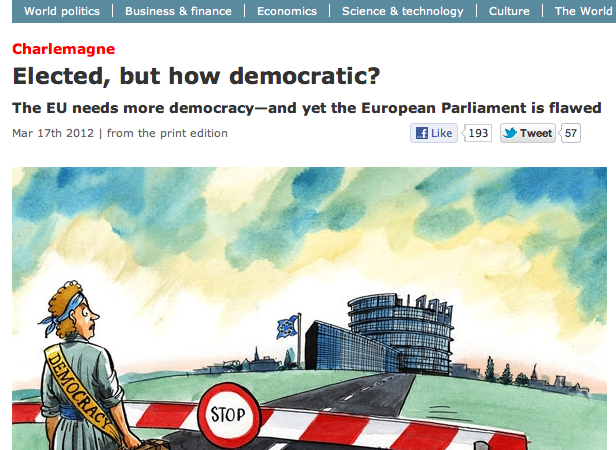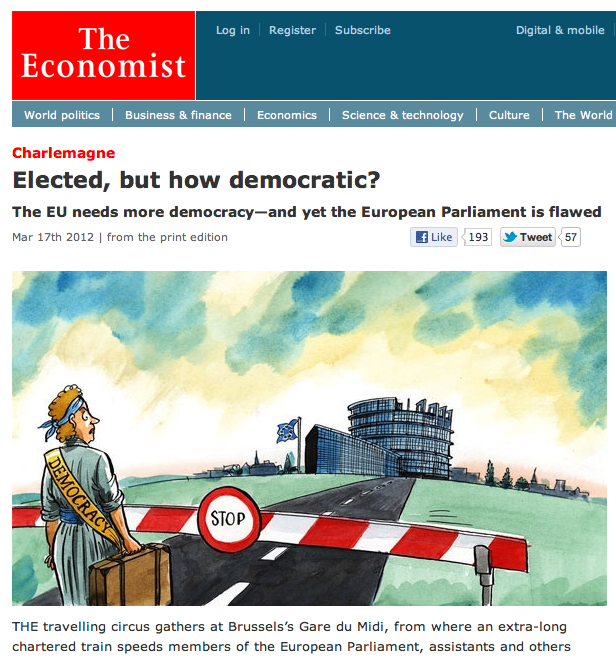Charlemagne column in The Economist is the next to have a go at the EP – a few partial replies

 It seems the European Parliament can do no right just at the moment. Following hot on the heels of Jack Straw calling for the European Parliament to be abolished, the Charlemagne column in The Economist has weighed into the debate with a piece entitled Elected, but how democratic? in which the EP as an elected institution is defended, but with the proposal to prune the number of MEPs, and the costs of the Parliament, not least by abolishing the Strasbourg seat.
It seems the European Parliament can do no right just at the moment. Following hot on the heels of Jack Straw calling for the European Parliament to be abolished, the Charlemagne column in The Economist has weighed into the debate with a piece entitled Elected, but how democratic? in which the EP as an elected institution is defended, but with the proposal to prune the number of MEPs, and the costs of the Parliament, not least by abolishing the Strasbourg seat.
Let’s deal with these piece by piece.
First of all, as I have repeatedly argued in the past, there can be no defence of the Strasbourg seat. It must be done away with. The European Parliament needs to show determination on this, and so too must Member States by trying to find a way to appease France over the issue. The European Parliament should not shoulder the whole blame for the Strasbourg folly.
As for the EP itself and its costs: administration is 6% of the total EU budget for all the institutions, and the EU budget is 1% of EU GNI. That’s not to say that there could not be savings in the European Parliament, but I do not see how having fewer MEPs is going to help much. The decent ones are already overloaded trying to conduct constituency business and their Brussels legislative work. There is undoubtedly plenty of dead weight in the EP, but the way to deal with that is through open lists to elect MEPs as Simon Hix has consistently argued. Also if the EP is to seek to foster proper representative democracy in the EU then having MEPs representing more citizens than they already do is surely not going to help.
A further problem for the EP is that young and determined MEPs tend to leave, seeking more responsible positions in national politics. Danish social democrat Dan Jørgensen is the latest to announce he is to step back (tweet in Danish here). He follows a long line of others – Alexander Stubb, Nick Clegg, Michiel Van Hulten, Helle Thorning Schmidt, Lousewies Van Der Laan (more on these characters here). The EP would be better place with politicians like these still there. But as a determined MEP where can you go within Brussels? There has never been a route from the EP to the Commission in the same way there is a way for a backbencher to become a minister in Westminster. Connecting the outcome of the EP elections with the composition of the Commission – party-politicising the Commission – would also help.
Lastly, achieving legitimacy for the EU through national parliaments – a further Charlemagne suggestion – is another non-starter. There is nothing to stop parliaments across the EU behaving like the Danish Folketing, but they don’t. They don’t use the powers they have already, because national parliamentarians have no incentive to do so. I’ve blogged more about this here.
There are too many MEPs, too few responsibilities, IMHO.